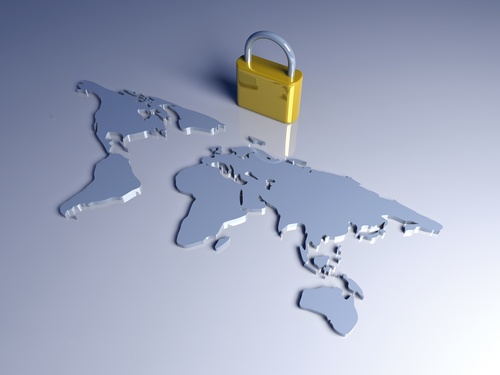
In our previous post, we discussed the importance of ACTA as one of the most significant international attempts to enforce brand protection in the digital age.
We asserted that by understanding what ACTA was, what it proposed to do, and why it did not ultimately succeed, we can understand how to create future agreements for brand protection that respect both the rights of consumers and the interests of copyright infringement groups.
While our previous post focused on ACTA's rise, supporters, and proponents, here we will focus on the stakeholders that opposed ACTA.
By taking an unbiased look at both sides of the ACTA debate, we can form an informed, educated opinion on the subject of international copyright infringement law.
Criticism
Although ACTA received substantial support from governments and individuals alike, many individuals and organizations did not take kindly to it.
The treaty was accused of proposing measures that would have adverse effects on fundamental civil rights such as freedom of expression and communication privacy.
Opponents were particularly critical of what they viewed as ACTA's “secret” negotiations, which excluded the general public, developing countries, and civil society groups from the negotiation process.
Preliminary ACTA documents were first brought to the public eye through WikiLeaks, and the first official text was not officially released until it had been finalized in 8 rounds of closed-door negotiations. Because of the allegedly secretive nature of these meetings, ACTA proponents were accused of policy laundering.
Opposition and Protest
Many groups, researchers, and thought leaders spoke out against ACTA. The Free Software Foundation argued that it would “create a culture of surveillance and suspicion” by encouraging service providers to collect and share information about suspected infringers.
Aaron Shaw, Research Fellow at Harvard University, stated, “ACTA will create unduly harsh legal standards that do not reflect contemporary principles of democratic government, free market exchange, or civil liberties.”
U.S. Senator Ron Wyden stated, “When international accords, like ACTA, are conceived and constructed under a cloak of secrecy, it is hard to argue that they represent the broad interests of the general public.”
Many groups were alarmed that ACTA would facilitate privacy violations against citizens suspected of copyright infringement without any due process. In an editorial, The Toronto Star accused ACTA of allowing surveillance of online activities and invasive searches of personal computers without probable cause.
These criticisms and many more led to widespread protests, demonstrations, and resignations across the world, particularly in Europe. Finally, the European Parliament rejected ACTA in July 2012.
Outcome
Although it ultimately failed, there is much we can learn from the rise and fall of ACTA. The need for brand protection is not going away anytime soon, and corporations and governments will continue to seek a way to protect intellectual property rights and fulfill their responsibilities to their stakeholders.
By understanding ACTA, we can understand how to create them fairly.
ACTA represents one of the first times that lawmakers attempted to tackle digital copyright infringement across international borders. Traditionally, international trade negotiations have been held behind closed doors, but this method is at odds with the open, transparent, and inclusive approach to policy development that is encouraged by internet culture.
In the case of ACTA, internet users demanded that agreements related to digital copyright laws be open and transparent, setting a precedent for future intergovernmental negotiations.
The next time a Trade Agreement is negotiated, it must be done with the full awareness and participation of all stakeholders—not just brand protection agencies and governments, but internet users, civil groups, content creators, internet service providers, and the tech community.
Otherwise, it will be met with the same resistance and ultimately meet with the same fate as ACTA.
Although most people have forgotten ACTA, it has marked a new page in the history of international lawmaking that will undoubtedly need to be referenced again—lest the mistakes of the past are repeated.
